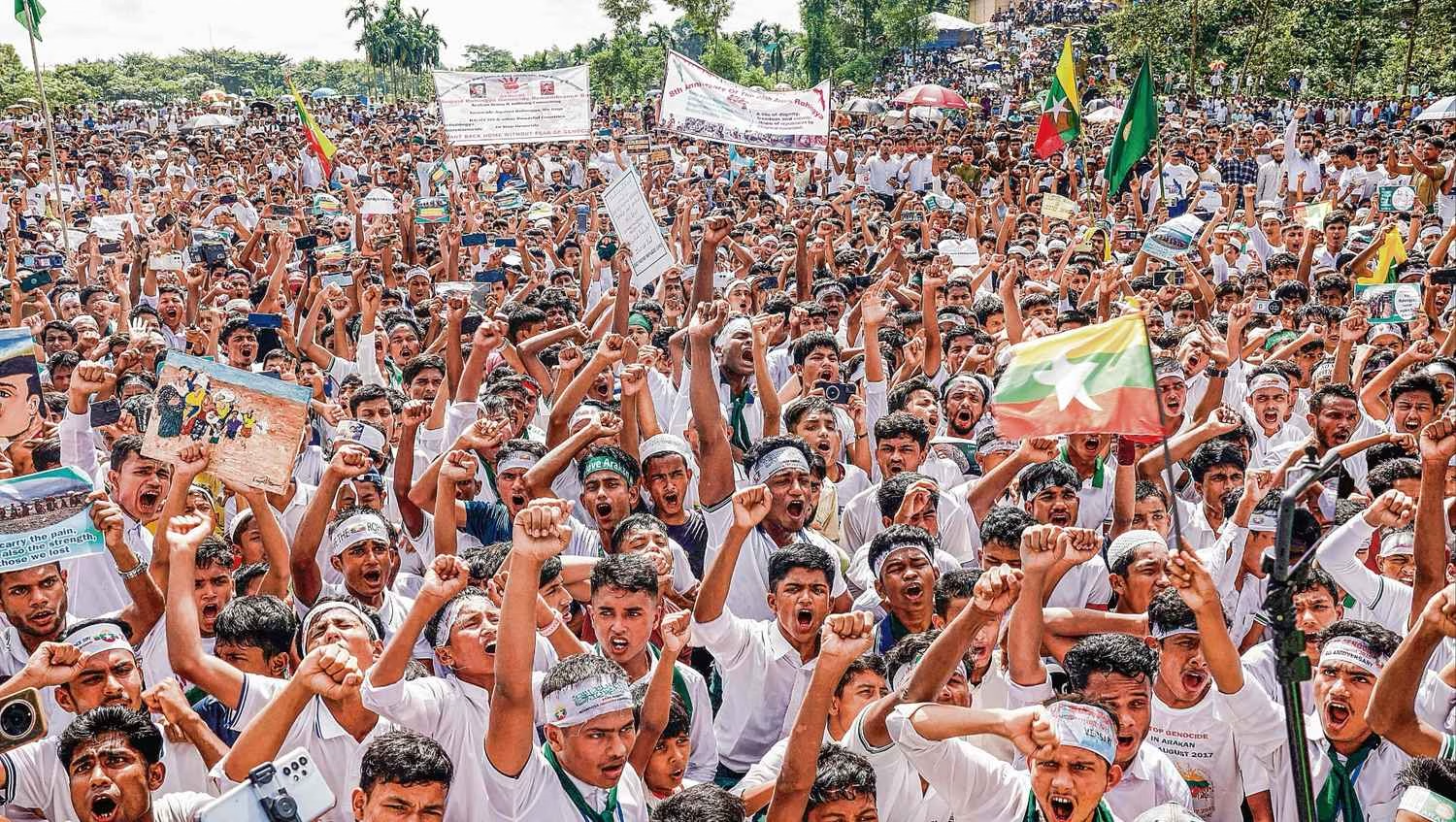On the 8th Rohingya Genocide Remembrance Day, Bangladesh urged the international community to act urgently to resolve the protracted Rohingya crisis.
At the Stakeholders’ Dialogue: Takeaways to the High-Level Conference on the Rohingya Situation in Cox’s Bazar, Chief Adviser Muhammad Yunus unveiled a seven-point proposal.
The plan focuses on securing the Rohingya’s right to return to Myanmar, sustaining humanitarian support, halting violence in Rakhine, fostering inter-ethnic dialogue, mobilising ASEAN and neighbouring states, resisting ethnic cleansing globally, and advancing accountability through international justice mechanisms.
Yunus stressed that with 1.3 million Rohingya people now living in camps in Bangladesh, including 32,000 new births each year, the burden has become unsustainable.
He urged global solidarity, warning: “It will be a historic blunder if we wait for seeing the very last Rohingya leaving Rakhine.”
Appealing directly to international stakeholders, he said: “We don’t afford any more to stand silent at the protracted situation of Rohingyas. Hence, we urge upon the international community to undertake collective efforts to stop the Myanmar Junta and the Arakan Army from unleashing violence against the Rohingya. Effective role of the international community is much more needed than ever before.”
Despite Bangladesh hosting more than 1.3 million Rohingyas since the 2017 mass exodus, Yunus noted that desperate families continue to arrive.
“We see fearful and shattered eyes of Rohingya women and men when they appear at our doorsteps with horrific stories,” he told delegates, recounting testimonies of killings, rape, torture, arson, and denial of citizenship.
Underscoring the urgency, Yunus reminded participants that Cox’s Bazar now shelters the world’s largest refugee population, with more than 32,000 births each year, while fewer than half a million Rohingya remain in Myanmar.
He cautioned that Bangladesh’s resources have been stretched to their limit after eight years of hosting refugees.
“We don’t foresee any scope whatsoever for further mobilisation of resources from our domestic sources given our numerous challenges,” he warned.
Yunus praised the resilience of host communities and the generosity of the Bangladeshi people, while urging global partners to keep the crisis high on the world agenda.
Recalling his Ramadan Iftar this year in Cox’s Bazar with UN Secretary-General António Guterres and over 100,000 Rohingya, he said the event highlighted the refugees’ “keen desire to return home as soon as possible.”
High Representative for the Rohingya Issue and National Security Adviser Khalilur Rahman also called for “concrete international action” to guarantee the safe and dignified repatriation of the displaced community.
The remembrance ceremony included a minute of silence to honour the victims, followed by the screening of a documentary on the crisis.
Disaster Management and Relief Adviser Faruk E Azam, Bir Protik, Foreign Secretary Asad Alam Siam, and UNHCR Assistant High Commissioner Raouf Mazou also addressed the gathering.
The three-day conference, the first of its kind in Bangladesh, began on Sunday and will conclude on Tuesday. Political leaders, diplomatic mission officials, aid agency representatives, and members of the Rohingya diaspora are participating.
In addition to the main session on Monday, two thematic sessions were held to discuss various aspects of the crisis in detail.


